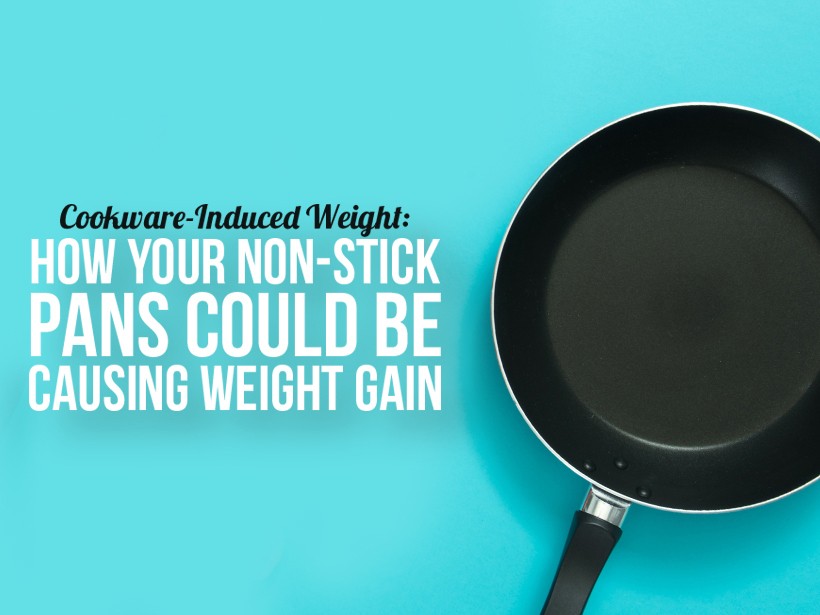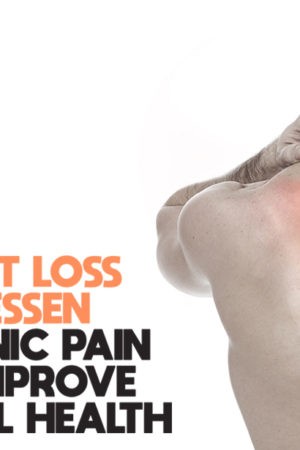Is the way you cook your food causing you to struggle with weight loss? We’re not just talking about adding extra calories while you prepare your meals–a recent study shows that the cookware you use could be affecting your ability to shed unwanted pounds.
Researchers at Harvard University recently sought to identify how the cookware you use could be toying with your weight loss journey.1 In the study, over 600 overweight individuals were placed on a weight loss plan for 6 months. Upon reassessment after 18 months, researchers noted that participants had gained back almost half the weight they lost while on the program.
Perfluoroalkyl Substances (PFASs)
When participants in the Harvard study were examined more closely, it was noted that those that gained back the most weight at the quickest rate were the ones with the highest levels of Perfluoroalkyl substances (PFASs) in their bodies. So where do PFASs come from?
Perfluoroalkyl substances are man-made chemicals used in a variety of waterproof and non-stick products – like Teflon pans, non-stick cookware, waterproof clothing, and stain repellent coatings, like Scotchguard.2
The Effect of Perfluoroalkyl Substances
While toxic exposure to PFASs outside of an industrial setting is quite rare, the effects can include low infant birth, compromised immune system, thyroid hormone disruption, and cancer.3 But, in the case of this Harvard study, none of the participants were exposed to toxic levels of PFASs. Rather, the use of non-stick cookware – presumably to avoid using additional oils while cooking – may have been the most probable reason why participants had higher levels of PFASs.
The participants that were noted to have gained the most weight back after weight loss were also identified as having the lowest metabolic rates of the group – meaning that their resting metabolism burned fewer calories when going about their day normally. Could their exposure to Perfluoroalkyl substances have caused their metabolism to slow down and impede their success in maintaining weight loss?
Time to Ditch the Non-Stick?
While still requiring additional research, the researchers at Harvard University have uncovered a troubling correlation between weight loss and our tools in the kitchen. The team that completed the study hopes to dive into further data and conduct more studies in order to determine whether a direct correlation exists, since evidence is purely circumstantial at this point.
Circumstantial or not though, it may be time to consider tossing your non-stick cookware if you’re committed to achieving and maintaining weight loss. For those on a keto diet, the addition of butter to the pan to prevent sticking doesn’t pose much of a problem. However, it is still important for ketoers to stay within their caloric budget in order to gain the greatest advantage in fat loss. Do you know how many calories you should be eating while in keto?
NUTRITIONAL DISCLAIMER
The content on this website should not be taken as medical advice and you should ALWAYS consult with your doctor before starting any diet or exercise program. We provide nutritional data for our recipes as a courtesy to our readers. We use Total Keto Diet app software to calculate the nutrition and we remove fiber and sugar alcohols, like erythritol, from the total carbohydrate count to get to the net carb count, as they do not affect your blood glucose levels. You should independently calculate nutritional information on your own and not rely on our data. The website or content herein is not intended to cure, prevent, diagnose or treat any disease. This website shall not be liable for adverse reactions or any other outcome resulting from the use of recipes or recommendations on the Website or actions you take as a result. Any action you take is strictly at your own risk.
- New Keto-Friendly Coffee Drink - September 25, 2018
- Where Experts Agree: Cutting Through the Confusion - September 13, 2018
- Visualizing Weight Loss: New App Lets You See the Future You - September 11, 2018































